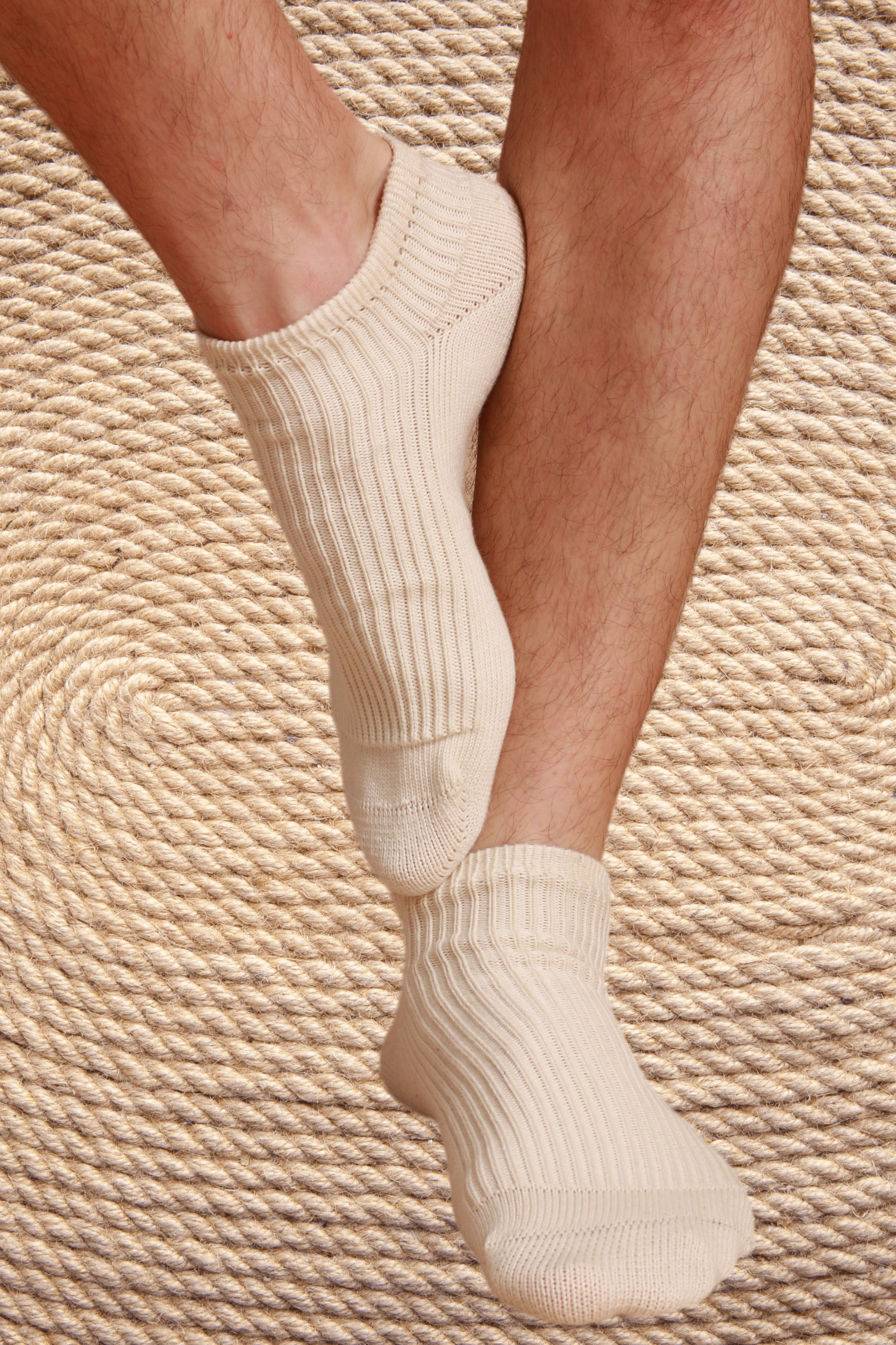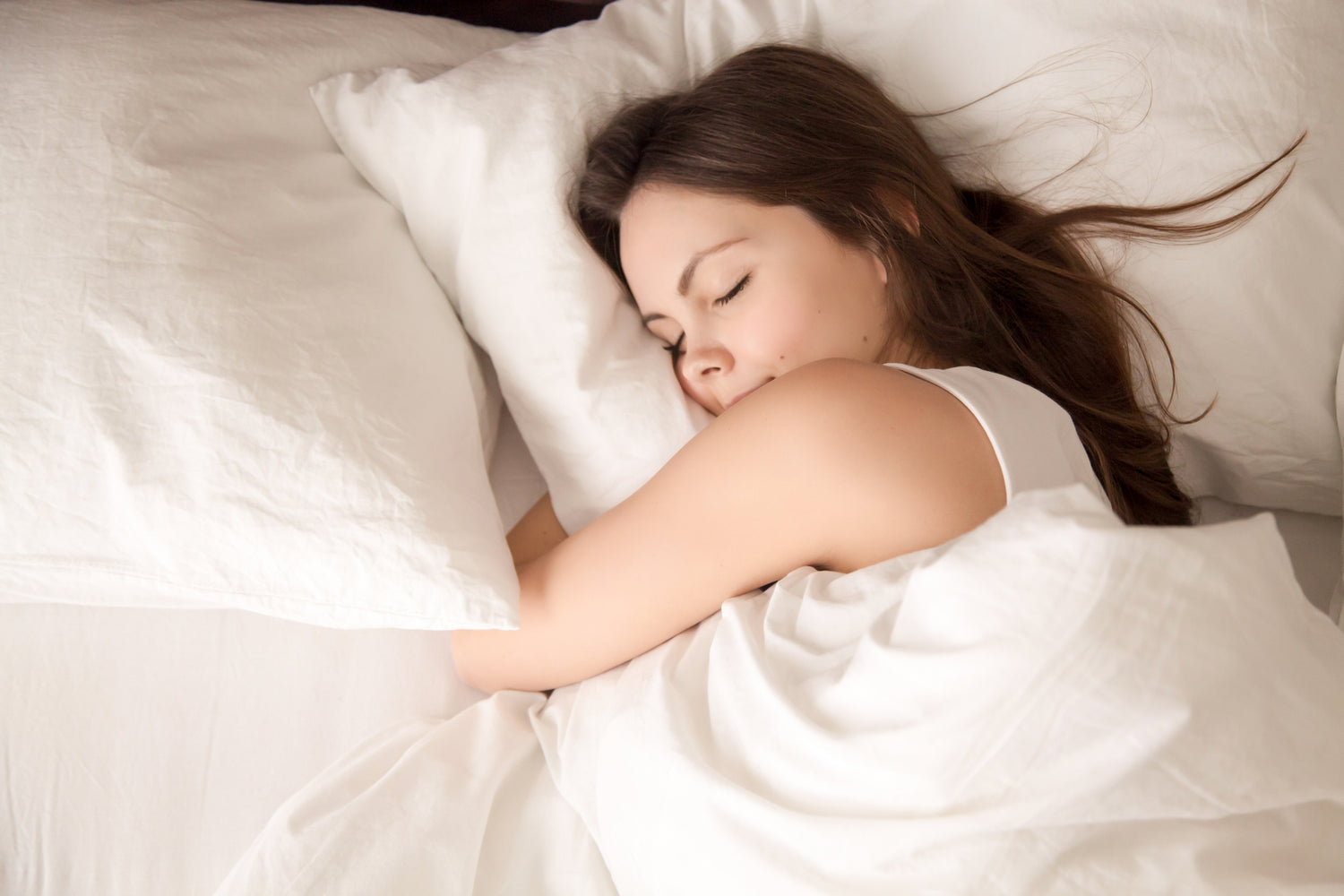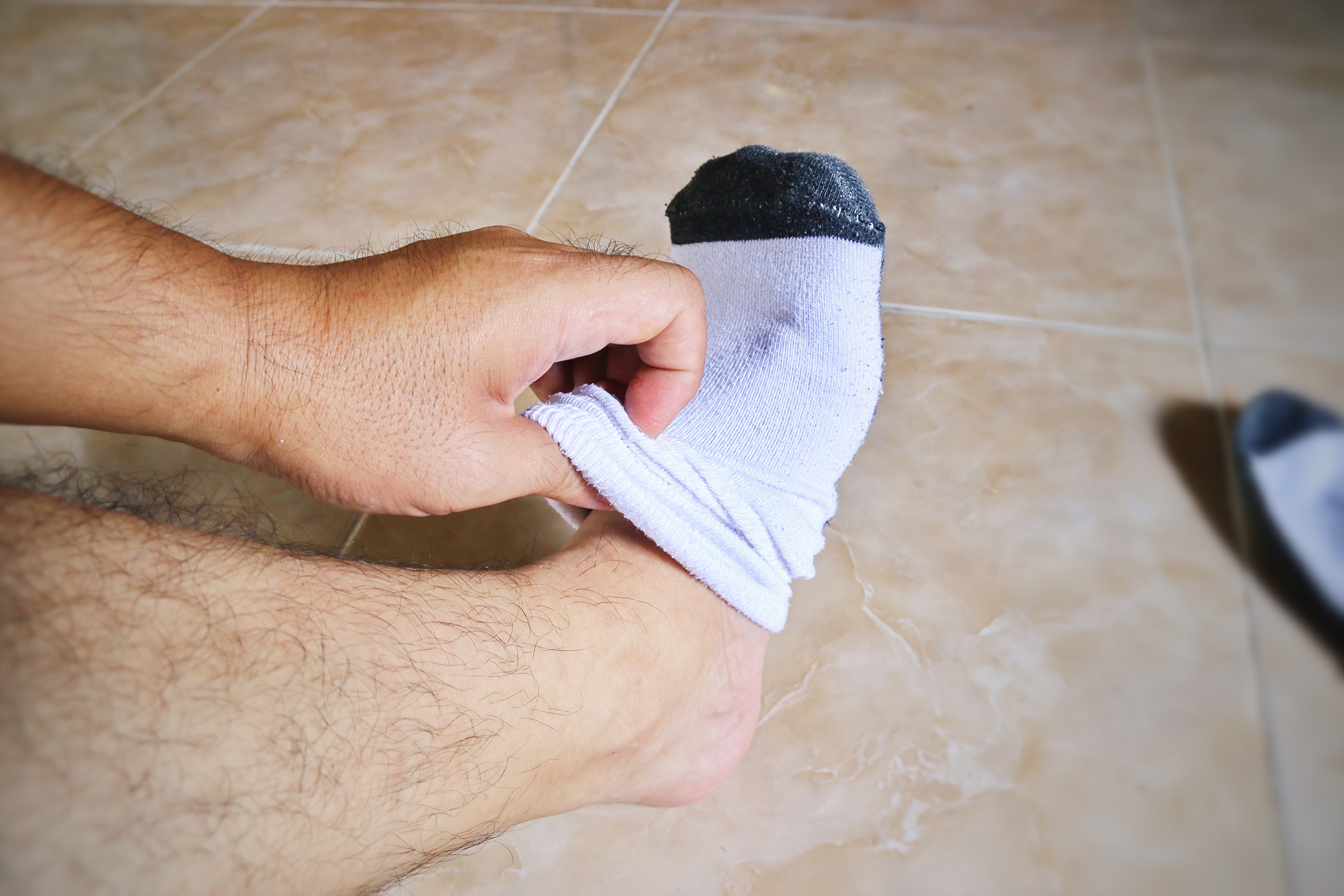When you have skin conditions, sleep deprivation can make everything go downhill—from your immune system taking a hit to outbreaks of acne, eczema, psoriasis, and other skin flare-ups. Lack of sleep can also increase the body's stress hormones, compromising the skin's barrier function by making it more susceptible to irritants and allergens.
According to the National Eczema Association (NEA), sleep is as important to humans as breathing, eating, and drinking. However, for individuals and families dealing with skin conditions like eczema, sleep often comes in short bursts between itching and scratching cycles.
"When lack of sleep builds up over weeks, months, or even years, it can significantly harm our wellbeing. People with eczema often have disturbed sleep, leaving [them] exhausted and at a higher risk of a flare-up," they said. NEA explained that people usually wake at least two to six times a night. For people with eczema, however, these casual sensible moments are beleaguered by intense itching.
“First, during these brief arousals, the itch sensation may kick in and the reflex of scratching begins. Unfortunately, the reflexive scratching will often result in increased itching/scratching and may even result in bleeding," it added.
The Centers for Disease Control and Prevention (CDC), on the other hand, reported that more than a third of American adults are not getting sufficient sleep on a regular basis.
"Sleeping less than seven hours per day is associated with an increased risk of developing chronic conditions such as obesity, diabetes, high blood pressure, heart disease, stroke, and frequent mental distress," the CDC shared.
WHAT ARE THE EFFECTS OF POOR SLEEP ON PEOPLE WITH SKIN CONDITIONS?
In an article published by Pierre Fabre Eczema Foundation, it said that 80% of adults with atopic eczema complain of sleep problems. Meanwhile, 50% of them shared that sleep has become less restorative.
"You often hear that itching really ramps up in the evening. It’s true. Itching, along with scratching, is often more intense at this time,” it said, emphasizing that people with atopic dermatitis often have trouble sleeping as a result.
"They may have trouble falling asleep, wake up more often through the night, or even be at higher risk for sleep apnea. Sleep is less restorative, and waking up is more difficult, leaving patients feeling exhausted in the morning," it added.
Aside from the intense itching and the uncontrollable toss and turn, poor sleep can also have significant effects on individuals with skin conditions like eczema and psoriasis, exacerbating their symptoms and impacting their overall well-being.
- Increased Inflammation
Poor sleep can increase body inflammation, which can lead to eczema and psoriasis flare-ups. When you do not get enough sleep, your inflammatory processes are usually amplified, which increases your skin's redness, itchiness, and discomfort.
- Impaired Skin Barrier Function
In order to maintain and repair the skin's protective barrier, adequate sleep is essential. Without enough sleep, the skin barrier may weaken, making it easier for allergens and irritants to enter the body. As a result, the skin may become more sensitive, dry, and susceptible to infections.
- Delayed Skin Healing
Sleep is a crucial time for the body to regenerate and repair damaged tissues, including the skin. It can be more challenging for people with eczema and psoriasis to recover from flare-ups and skin injuries when they do not get enough sleep because this can slow down the healing process. This may make symptoms last longer and prevent the skin's overall health from improving.
- Emotional and Mental Well-being
Poor sleep can impact emotional and mental well-being, which can, in turn, affect skin conditions like eczema and psoriasis. Sleep deprivation can lead to increased stress, anxiety, and irritability, all of which can trigger or worsen skin flare-ups. It creates a cycle where the stress from poor sleep can further aggravate skin conditions, leading to more sleep disturbances.
- Decreased Quality of Life
Continuous lack of quality sleep can significantly impact an individual's quality of life. The physical discomfort, itchiness, and emotional distress caused by poor sleep and worsened skin conditions can lead to daytime fatigue, reduced productivity, impaired concentration, and decreased overall enjoyment of life.
Aside from these effects, sleep deprivation can also cause dark circles around the eyes, lower the immune system, and disrupt the circadian rhythm. That’s why it’s necessary for people with skin conditions to prioritize restful sleep to maintain the healthiest skin possible.
But where does one begin?
WHAT MEASURES SHOULD I TAKE TO ADRESS SLEEP I DO?
According to the National Eczema Society (NES), here are steps that people with skin conditions can take to increases their chances of a good night's sleep.
- CREATE A CONDUCIVE SLEEP ENVIRONMENT
Deep cleaning is necessary to make your home the most peaceful place to be. The NES advises cleaning the ceiling, light fixtures, walls, doors, skirting boards, curtains, cushions, and floors before moving on to the lower portions of the room.
"Pull everything out, to clean behind, and give the windows, including the glass and frames, a thorough scrub – especially important as these are an entry point for irritants. Damp-dust, wherever possible, as this is more effective than dry dusting for removing dust, pollen and moulds," it said.
- TAKE A MINIMALIST APPROACH
Even in the bedroom, simplicity is key. People with skin conditions are urged by the NES to consider every piece of furniture as a potential host to triggers; thus, minimizing clutter.
"We spend over a third of our lifetime in bed – and children, teens and young adults spend even longer than adults in their bedrooms playing, studying and entertaining friends – so it’s vital to create an eczema-friendly environment," it said.
"Choose cupboards, rather than open shelving, for storing toys and keepsakes or invest in a toy box, with a lid, or a blanket box," it added.
- SELECT THE RIGHT BED AND BEDDING
According to the NES, The Sleep Council advises changing your mattress every seven years. After that, it will have gone through 20,000 hours of wear and tear, absorbed the pound of dead skin cells we shed annually, and absorbed the half pint of fluid we lose each night, making it a veritable haven for house dust mites.
"Avoid memory foam mattresses as these mould to your shape and reduce air circulation, making you warmer. If your children have bunk beds, let the child with eczema sleep on top, to avoid dust dropping down on them," the NES said, emphasizing that individuals with sensitive skin should avoid feather bedding and use anti-allergy protective covers on pillows, duvets and mattresses instead.
- APPLY EMOLLIENTS
You are free to apply emollients as frequently as you like during the day. But at night, you want your routine to keep you going until morning, if possible. That’s why many people apply a more intensive emollient before going to bed to nourish and moisturize the skin.
"Wet wrapping, using tubular bandages or night-time garments, can help patients of all ages get a better night’s sleep. Not only does this provide an extra layer of protection – helpful if you scratch in your sleep – but having a wet layer over a thick layer of emollient helps keep the skin’s surface cool, reducing itching," the NES said.
- WEAR THE RIGHT CLOTHES
Even if you have the ideal sleeping environment, including a soft, cushioned mattress and constant white noise, wearing clothes made with the wrong fabrics to bed can have a terrible impact on one's ability to sleep. According to NEA, one should always “dress for success.”
“Choose natural, breathable fabrics to sleep in, such as cotton, bamboo or silk, which are soft against your skin. Many people prefer cotton for nightwear [and] bedding as it can be laundered at high temperatures,” it said, reminding people with skin conditions to avoid clothes with seams or zips that might rub the skin.
“If you know you scratch in your sleep, keep your nails short and filed and consider wearing cotton gloves to bed [although] some people double up to ensure a snug fit,” it added.
If you're someone who experiences skin sensitivities, rashes, or irritation, choosing the right garments can make a significant difference in promoting comfort and maintaining skin health. At Cottonique, we believe that the secret to a good night’s sleep lies on the clothes you’re wearing to bed.
Our allergy-free collections, which range from tops and bottoms to masks and other accessories that aid in symptom relief, are made with GOTS-certified 100% organic cotton. No latex, no spandex, and no formaldehyde.
If you are seeking clothing options that prioritize safety for individuals with skin allergies and sensitivities, explore our allergy-free organic cotton collection. These garments provide a comfortable and synthetics-free experience, allowing individuals to live with ease while maintaining skin health.
FOR MEN
Casual and versatile allergy-free wardrobe staple
The best all-around hoodie with allergy-free protection and comfortable fit
Unbeatable non-irritating comfort from the waist down
FOR WOMEN
Dependable allergy-free wardrobe essential
Essential and functional hypoallergenic hoodie your skin will love
Experience allergy-free comfort from the waist down
ACCESSORIES
Unwavering allergy-free comfort and defense against allergens
Stay well-rested, comfortable, and allergy-free with your eyes closed
TAKEAWAY: The key to controlling eczema symptoms and promoting skin healing is getting enough good sleep. It supports the restoration of the skin's protective barrier, lessens swelling and itching, controls stress, strengthens the immune system, balances moisture levels, and promotes overall wellbeing.
People with skin conditions can improve their quality of life and skin health by understanding the value of sleep and taking steps to ensure adequate rest, which includes being mindful of the clothes you will wear to bed.
DISCLAIMER: The information presented on Cottonique is not, and will never be, intended to be a substitute for professional medical advice, diagnosis, or treatment. All content materials found on this site, from text, treatments, outcomes, charts, graphics, photographs, and study findings, are created and published for general informational purposes only. It should not, in any way, be construed as a standard of care to be followed by a user of the website.
Thus, readers are encouraged to verify any information obtained from this website with other accurate references and review all information regarding any medical condition or treatment with their physician. As Cottonique strives to help those with allergies live with better days, the hypoallergenic apparel brand encourages everyone to always seek the advice of their physician or other qualified health providers with any questions they may have regarding a medical condition.









Hinterlasse einen Kommentar
Alle Kommentare werden vor der Veröffentlichung geprüft.
Diese Website ist durch reCAPTCHA geschützt und es gelten die allgemeinen Geschäftsbedingungen und Datenschutzbestimmungen von Google.